- The first government of Kyriakos Mitsotakis announced a 30-38 ΜΒΤs with a total cost of 2.5 billion euros, but years passed and the plans remained on paper.
- The civil war and interests between HERRCO and “Rewarding Recycling.”
- The major players in the construction and management of Waste Processing Units.
- According to the National Action Plan for the Circular Economy, Greece lags by 50% of the European average in the percentage of Municipal Solid Waste (MSW) recycling.
- Citizens pay once again for state inadequacy – Increases in municipal fees.
By Panos Katsahnias and Aris Hadjigeorgiou
Even though recycling in Greece has been at a very low level for decades, major waste management projects are at a standstill.
Under normal circumstances, a country that does not recycle and continues to bury 78% of its waste would have a good justification for building mechanical and biological treatment plants (MBTs) and bio-waste processing facilities. Indeed, the first government of Kyriakos Mitsotakis announced 30-38 MBTs at a total cost of 2.5 billion euros, but years have passed and numerous plans remain on paper.
In the early years, the headlines were full of reports about business conglomerates preparing to take on big waste projects. At the forefront were GEK-TERNA, through TERNA Energy, and AKTOR, through its subsidiary ELEKTOR, which were already involved in the few “built” units.
As new players emerged, including the Vardinogiannis and Mytilineos groups, seeking partnerships and acquisitions, the government began to complicate matters. On the one hand, it promised rapid progress on projects through the relevant authorities (Regional Authorities – Regional Association of Solid Waste) before the old NSRF was closed, on the other hand, it declared a preference for projects to be carried out through Public-Private Partnerships (PPP). It then changed the specifications for the product to be produced, then stated that it would take responsibility for central projects such as waste-to-energy plants.
Relevant articles:
- Public Procurement Authority denounces “unprecedented distortion of competition” in €250 million project of TERNA
- Five billion euros deals with private entities for waste management
In some cases, the methodologies used by contracting authorities also played a role in the delay. A telling example is what was revealed by Data Journalists last November (relevant article: HERE) concerning the MBT of the Western Sector Region of Central Macedonia, outside Thessaloniki, near the Mavrorachi Landfill. This publication was based on a decision of the Hellenic Single Public Procurement Authority (HSPPA), which identified methods of “distortion of competition” in favor of TERNA. The HSPPA’s decision followed appeals by two other interested consortia (AKTOR-HELECTOR and MYTILENAIOS-MESOGEIOS). As a result, the competitive process was blocked and the contracting authority (Regional Association of Solid Waste Management Agencies of Central Macedonia) appealed to the Council of State, requesting the annulment of HSPPA’s decision. In addition to TERNA and the two appealed consortia, INTRAKAT and the MOTOR OIL-ABAX-THALIS consortium are also involved in the process for the 250-million-euro project.
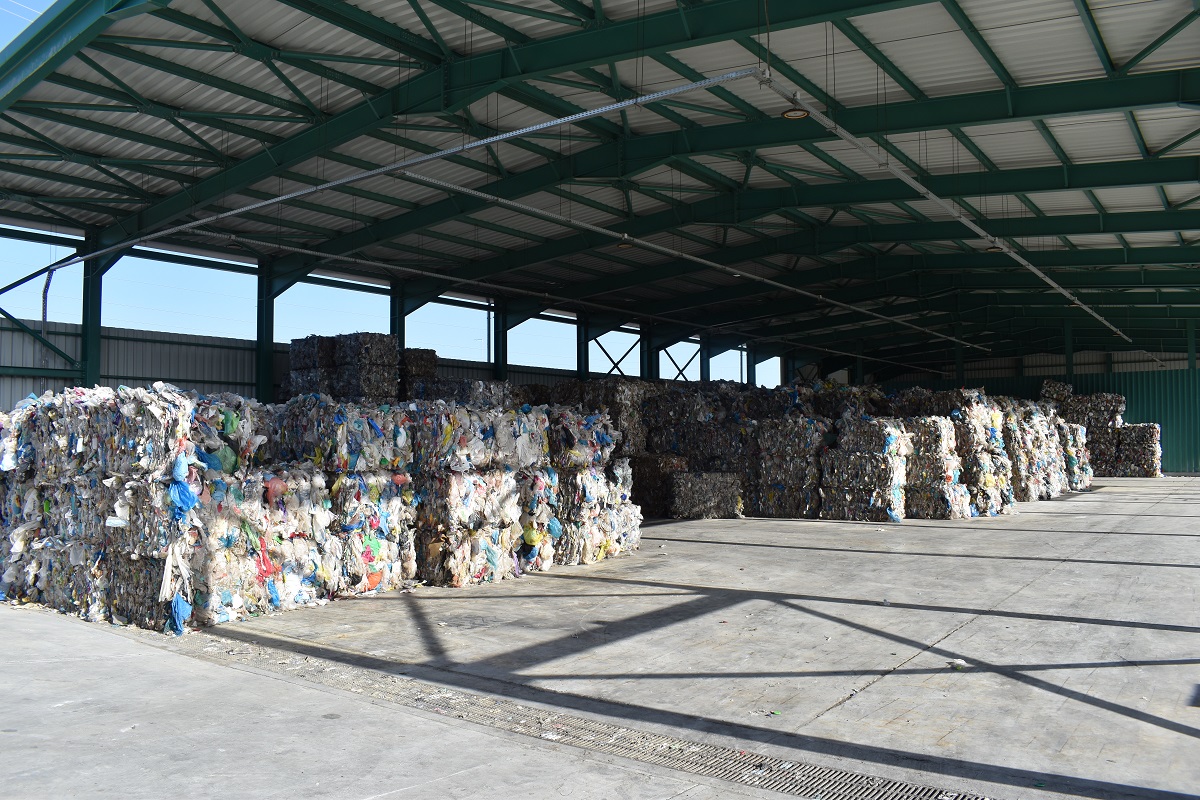
The same consortia have expressed interest in the two largest waste management projects in Attica, where the situation is shrouded in uncertainty. These projects, public-private partnerships (PPPs) with a budget of almost 800 million euros, concern Piraeus and the central Athens area. The chaos is illustrated by the fact that for the MBT in the Central Athens Area, there hasn’t even been a decision made on its location, while the other one is located in Schisto and the permitting process hasn’t progressed yet. The uncertainty is compounded by the change of leadership in the Attica region, which is responsible for the tendering process, following the turbulent dismissal of Giorgos Patoulis and the election of Nikos Hardalias. In addition, there is a hiatus regarding the other MBT in Grammatiko, which was to proceed as a public project, but the process has also been stalled due to appeals.
The National Waste Management Plan (NWMP), adopted by the government in 2020, promised that by the end of 2023, 30-38 new MBTs would be added to the existing five that have been operating since 2017. However:
- Finally, during these years, the MBTs of the PPP of Peloponnese (contracted in 2012), Alexandroupoli, Ilia, and Amarion Crete were added to these first five (Kozani, Epirus, Serres, Chania, Facility of Mechanical Recycling and Composting of Waste Ano Liosia).
- Under construction are the Thebes MBT, which was contracted before 2020, as well as plants in Zakynthos, Trikala, Hersonissos, Crete, Sitia, Kefalonia, Chios and the upgrade of the Heraklion MBT.
- The tenders for Lefkada, Nafpaktos, Kavala, Eastern and Western Thessaloniki, Volos, Larissa, Patras, Agrinio, Rhodes, Naxos, and Santorini are still pending.
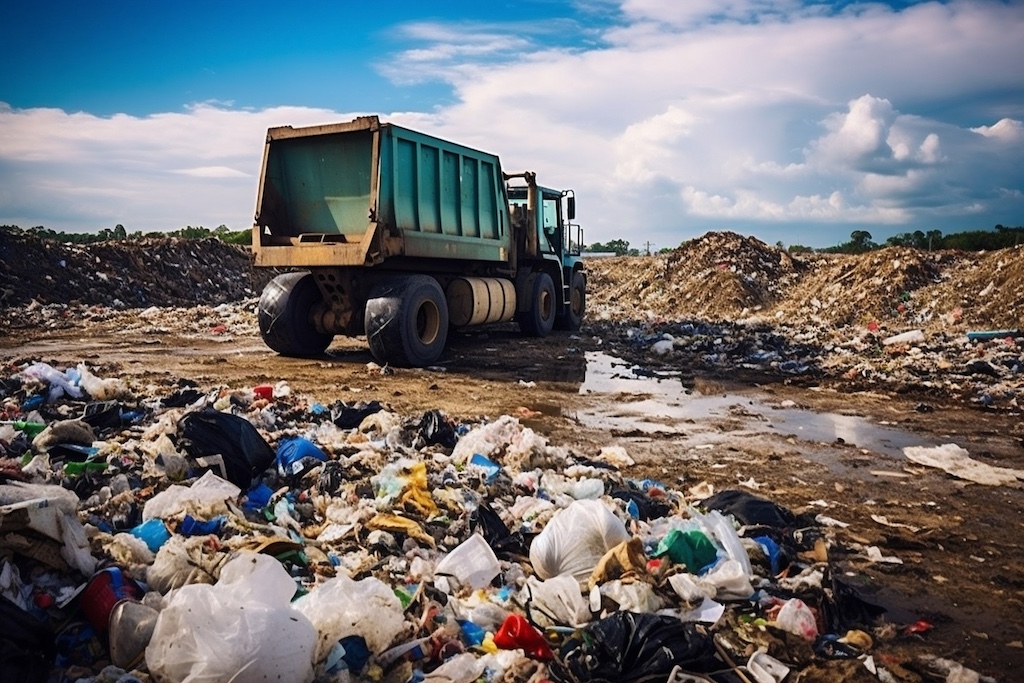
After 20 years and billions of euros spent, we as a country have reached the point where 45% to 50% (sometimes more) of the contents of the Blue Bins are garbage and not recyclable materials. Normally this percentage should be between 2% and 5%…
According to the National Action Plan for the Circular Economy, Greece is 50% below the European average in terms of the recycling rate of municipal solid waste (MSW).
This fact is leading the new municipal authorities to proceed with a significant increase in municipal fees to balance their budgets. This is because the charges for the “waste disposal fee” (a fine related to the poor performance of municipalities in recycling and imposed for every ton of waste that ends up in landfills) have already brought municipalities with low recycling rates to a financial standstill. Most municipalities in Attica – including the Municipality of Athens – have recycling rates in the single digits, meaning that a large percentage of their waste ends up in landfills.
According to the legislation, municipalities will pay a fine per ton of waste buried from the beginning of the year. In addition, the fine will be retroactive to 2022 and 2023. It will increase each year to pressure municipalities to implement recycling systems. Starting at €20 per ton of waste, it will increase to €35 for this year, reaching €45 in 2026 and €55 in 2027.
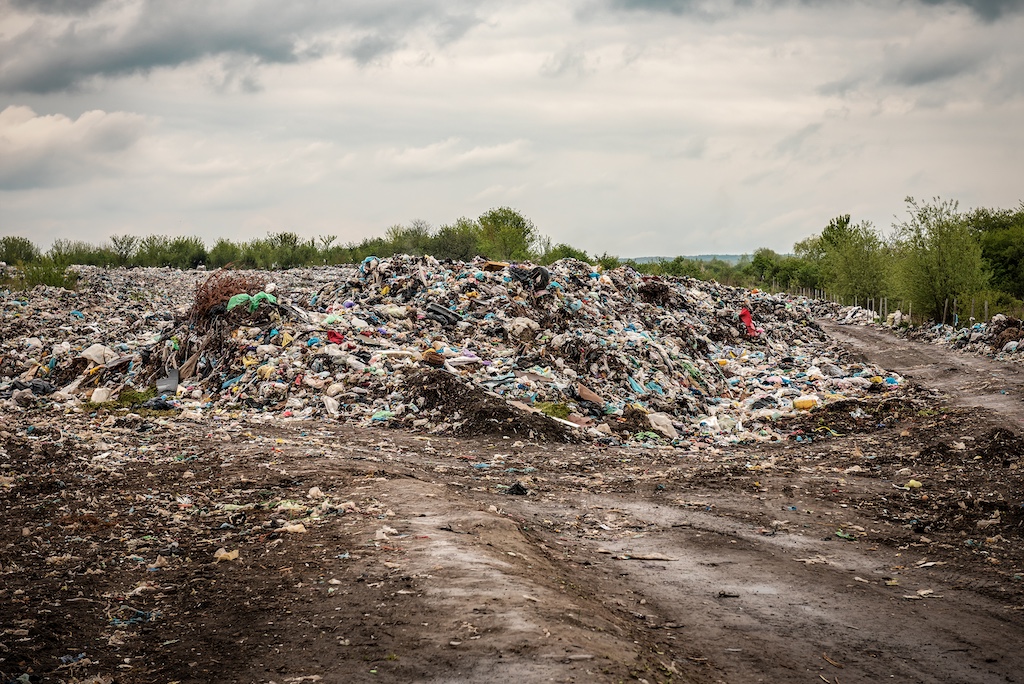
In its announcement, the Central Union of Municipalities of Greece states that by the end of 2024 – according to the provisions of the ministerial decision of December 15, 2023 – the municipalities will be called upon to pay a total of approximately 240 million euros for the retroactive payment of the “Waste Disposal Fee” for the years 2022, 2023 and the first 6 months of 2024. This development not only cancels the regular subsidy from the Ministry of the Interior to the municipalities (Central Independent Resources) for €200 million for 2024 but also jeopardizes the sustainability of their budgets.
In practice, this means that it will be more difficult to reduce the percentage of municipal solid waste going to landfills unless recycling programs advance.
Although the recent move of the Hellenic Recycling Organization (HRO) to new offices on Mesogeion Avenue could be seen as an upgrade to fulfill its crucial role in Greece’s sustainability efforts, the country’s race to reach the European average is akin to running a marathon at a sprinting pace. The HRO, which acts as a Supervisory Body under the Ministry of Environment and Energy, monitors recycling systems and assesses the performance of municipalities in seven waste streams, with the expectation that new streams will soon be added (such as mattresses, furniture, agricultural plastics, tobacco products). Remarkably, all of this is managed by a staff of only 13 people (effectively one person per region), even though the organizational chart indicates that 51 people are needed to carry out its tasks.
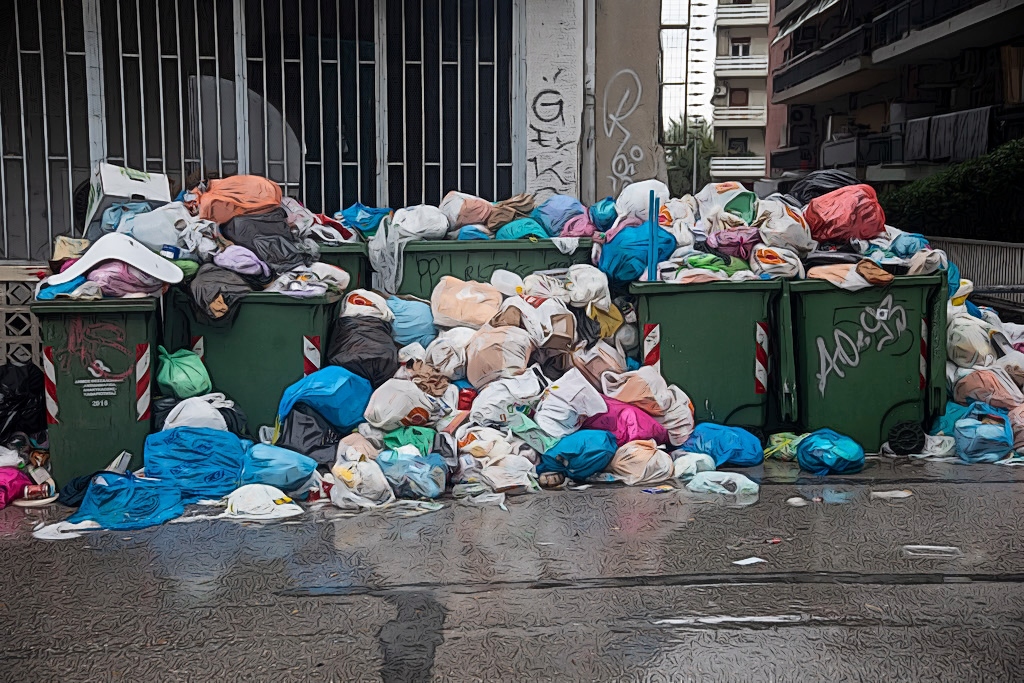
The recently established Regulatory Authority for Energy and Water Waste (RAEWW) is still in the process of being organized and is actively recruiting staff to fulfill its increased duties and responsibilities. Its role includes monitoring compliance with laws and regulations.
Producers, traders, entrepreneurs, agents, and importers are obliged by law either to recycle their product packaging themselves or to enter into an agreement with an Alternative Management System (AMS). However, this obligation is not consistently enforced, as there is significant evasion of contributions because the Electronic Waste Registry (EWR) and the National Producer Registry (NPR) are not linked to the General Electronic Commercial Registry (GECR), which prevents verification and cross-referencing of data.
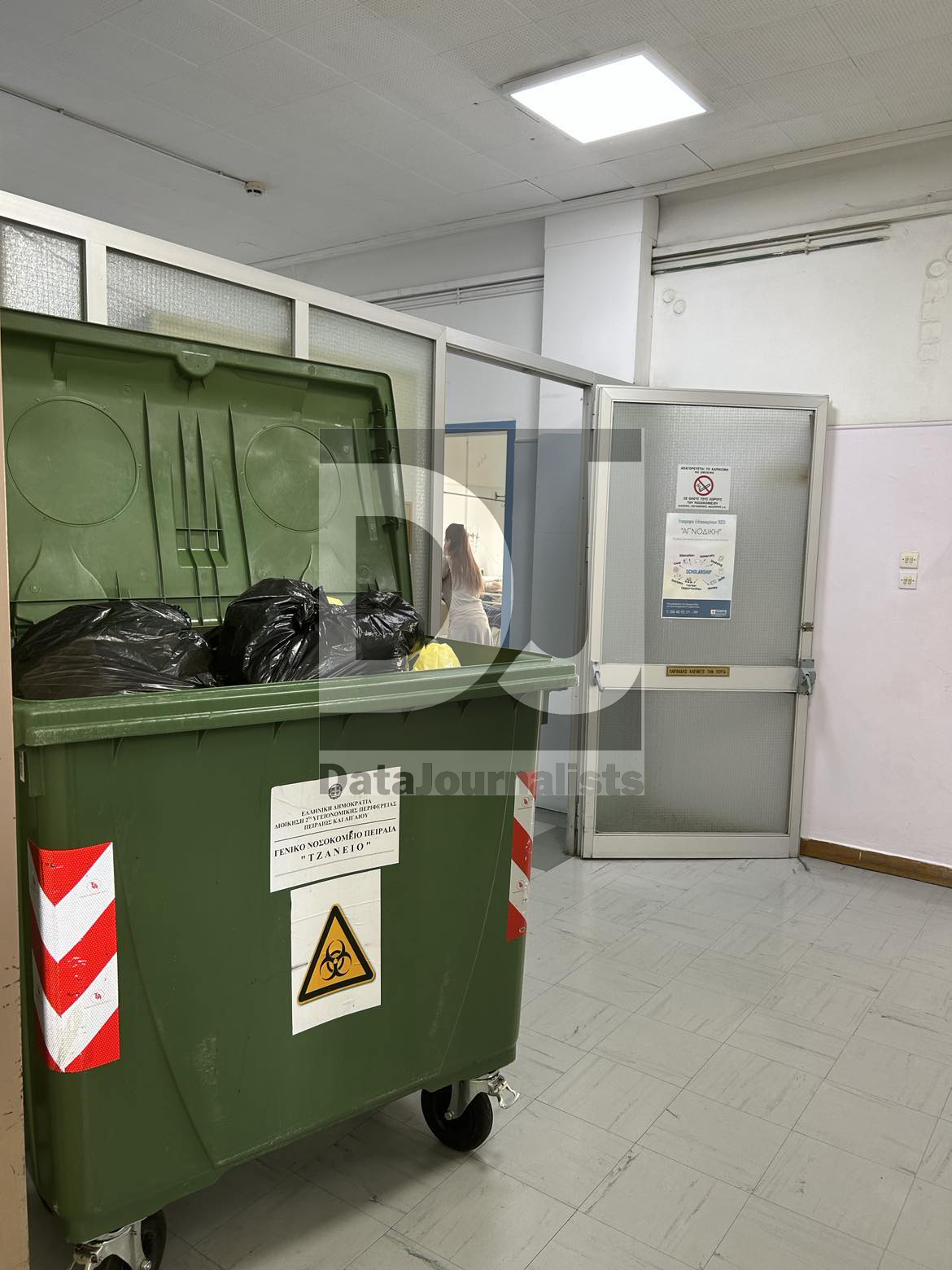
These “smart” ones should have been required by the Hellenic Recycling Organization (the competent authority for these controls), as well as by the State itself, to do what the law requires during these 20 years. This practice constitutes, among other things, unfair competition for others since they retain the recycling fee paid by consumers for this purpose at the time of purchase of the product.
The institutions are in place, and the Community directives have been transposed into national legislation, but their implementation remains theoretical. In practice – on the ground, as experts say – nothing has changed… Mr. Nikos Aslanoglou, member of the Board of Directors of the Hellenic Recycling Organization, points out to Data Journalists that unfortunately, this picture is not exaggerated at all.
According to the National Waste Management Plan (NSWM 2020-2030), Greece has committed to the EU to divert (recycle) 55% of total municipal waste by 2025 and 60% by 2030, with escalating targets.
The total amount of waste (municipal solid waste) reaches 31 million tons per year. Of this, municipal waste is 5 million tons per year. In the region of Attica alone, it reaches 2 million tons. Therefore, Greece had committed not to bury 55% (2,750,000 tons) of the 5 million tons of municipal waste. While next year it should bury only 45%, today – one year earlier – it is still at 78%. Recognizing the seriousness of these figures, the government immediately asked the European Commission to postpone these targets by five years. That is, 55% for 2030 and 60% for 2035.
Since the 2000s, when recycling started in Greece, municipalities contributed with a low percentage of 5%, organic waste (composting) with 1%-2%, and industrial-commercial packaging waste with 15%. Only in recent years, efforts have been made to close most of the landfills, at least in the continental countries, not counting the hundreds of illegal landfills and the difficulty of registering them.
The goal of recycling is to bury as little waste as possible and recycle everything else: Recyclable paper, metal, glass, plastic, and organics, which is the most difficult category since 45% of every 100 kg of waste is organic. It is food waste and biodegradable (bio-waste: toilet paper, kitchen paper, paper towels). The difficulty is that organic waste must be collected separately. And this is where the recycling process in Greece has difficulties. Because it is obligatory that next to the green and blue bins we should have placed the brown bins for organic waste.
Interaction
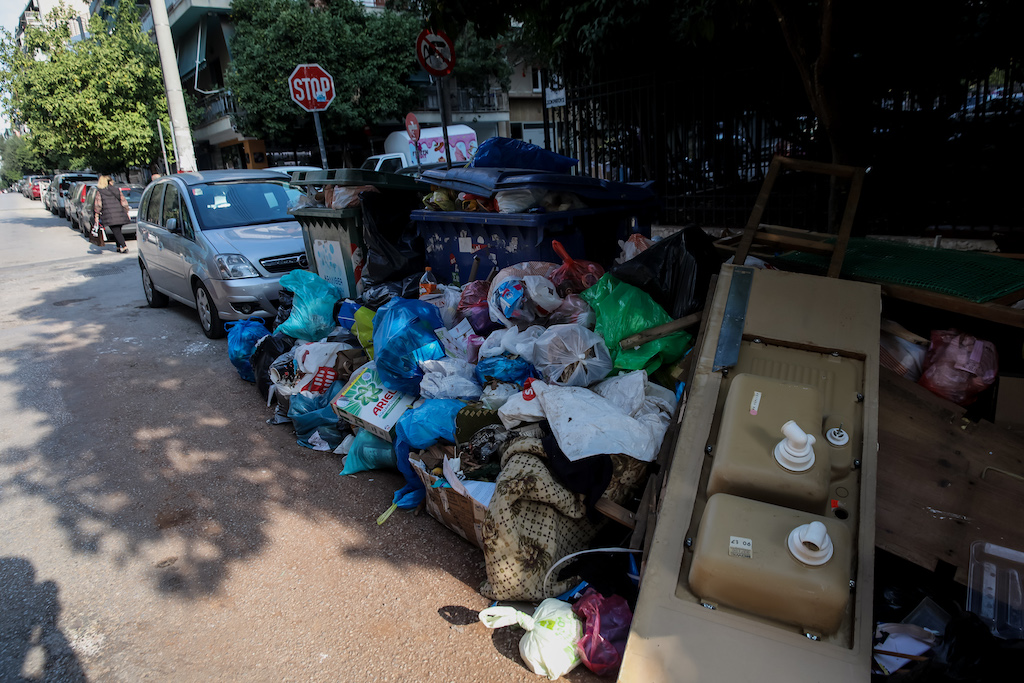
Recycling system means “interaction”. For a system to be implemented, it must have the means. The bins, the collection trucks, the necessary personnel, the sorting centers, and the processing units. Above all, it requires supervision, training, information dissemination, rewards, and the enforcement of fines for those who do not comply, to create a culture of recycling among citizens over time.
As a country, we follow the implementation of European Union regulations (European Commission Directorate-General for the Environment), which is an obligation as we are a Member State. The Community Directives issued in 2008 were transposed into national legislation in 2012 but were not implemented. In 2018, the Community Directives were again revised with stricter conditions and will become law in 2021, but they have still not been implemented. Since July 21, 2021, we have Law 4819/2021, which, for example, stipulates that as of January 1, 2022, separate bins for recycling paper, metal, plastic, and glass should be mandatory in all schools – both public and private – with the responsibility for their collection falling to the municipalities. However, no progress has been made. By September 1, 2022, all public buildings (municipalities, ministries, etc.) should have separate bins. This has not been implemented.
So, in Greece, we have a recycling model on a theoretical/legal level, but in practice, it has not been implemented for 20 years. Some steps were taken at the beginning, but it reached a certain point and has remained there ever since. It suffers both at the source and throughout the process.
During the proceedings of the 15th Meeting of the Network of Solid Waste Management Authorities in Kalamata on November 2-4, the Secretary General of Waste Management at the Ministry of Environment, Manolis Grafakos, announced that: “We have a plan, we are finalizing it with the relevant bodies and we will present it soon, so that a major reform in recycling will take place, leading to a significant increase in recycling rates in the country.” The delay in announcing measures by the Ministry of Environment and Energy is making the situation worse.
Funding “a la Greca”
Every 6 years Greece is supported by a new NSRF (National Strategic Reference Framework) program.
The NSRF 2014-2020 allocates 900 million euros to waste management, among other sectors. Within the six-year duration of the programs, a three-year extension (n+3) is foreseen. Thus, the previous NSRF was closed on December 31, 2023. The 900 million euros were allocated to Greece to achieve two things: necessary infrastructure (MBTs) where the country was deficient and measures to improve the first stage of recycling (bins, waste collection vehicles, “Green Points”, “Recycling Corners”). In the last meeting of the Monitoring Committee on November 22nd in Athens – in the presence of experts from the European Commission – Greece declared that it would not be able to absorb 32.9% of this amount by December 31st, 2023, and in order not to lose about 300 million euros, it requested the transfer of funds to finance the underwater electrical connection between Athens and Crete. Given that the same thing happened in the previous NSRF 2007-2013, and before that in the 3rd Community Support Framework (2000-2006), the question arises as to why the waste management sector in our country is still not able to fully absorb the funds allocated to it.
New NSRF – New era?
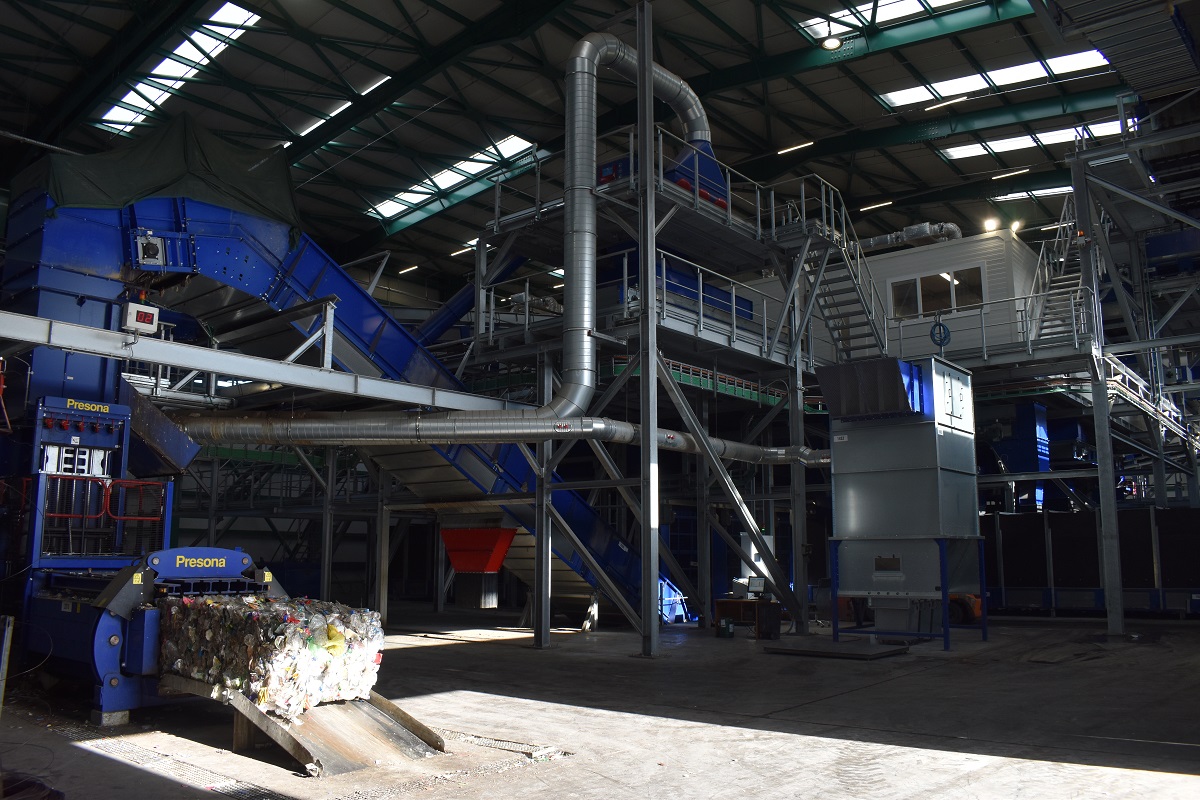
The European leaders, having now understood the Greek strategy against them, where theoretically and in words everything is applied, but in practice, as a country, we consistently fall dramatically short of the targets, in the new NSRF 2021-2027 (which, with the n+3 margin, will end in 2030) and allocates 800 million euros for waste management, contingencies are foreseen on their part to properly account for the new investments. Therefore, although we are already in 2024, nothing substantial has been started yet”.
Firstly, because in the Environment and Climate Change (ECC) program of the new programming period, the Association of Solid Waste Management of each of the 13 regions of the country will have to submit a complete Regional Waste Management Plan (RWMP) -which is also provided for by the NWMP- in which it is demonstrated how many units and where they are needed. In other words, a cost-benefit study shows, for example, that the plant is viable and can therefore be financed.
Secondly, this time the proposal will not be submitted piecemeal, for units, waste collectors, and bins, but the totality of what is needed to implement it will have to be submitted in a holistic plan.
Mr. Grafakos in Kalamata expressed optimism that the Regional Waste Management Plans (RWMP) will be completed by the end of 2024. However, for this to happen, many different things need to occur. Local Authorities and the Association of Solid Waste Management need to reach agreements on what is needed. Terms of funding need to be clarified. Because now the European Commission does not pre-finance the entire amount, but finances proportionally (pro rata) according to the agreed stages of project implementation and progress toward achieving the objectives.
So, once Greece has prepared the plan to be submitted to the European Commission with all the provisions, the calls will be opened from the budget of 800 million euros for the country to submit its proposals to be evaluated in turn and for us to receive the funds for the implementation of the projects and the acquisition of equipment for recycling. Thus, a new – stricter – landscape is being created in terms of our relations with the EU, starting with the NSRF 2021-2027.
Sizing of the projects
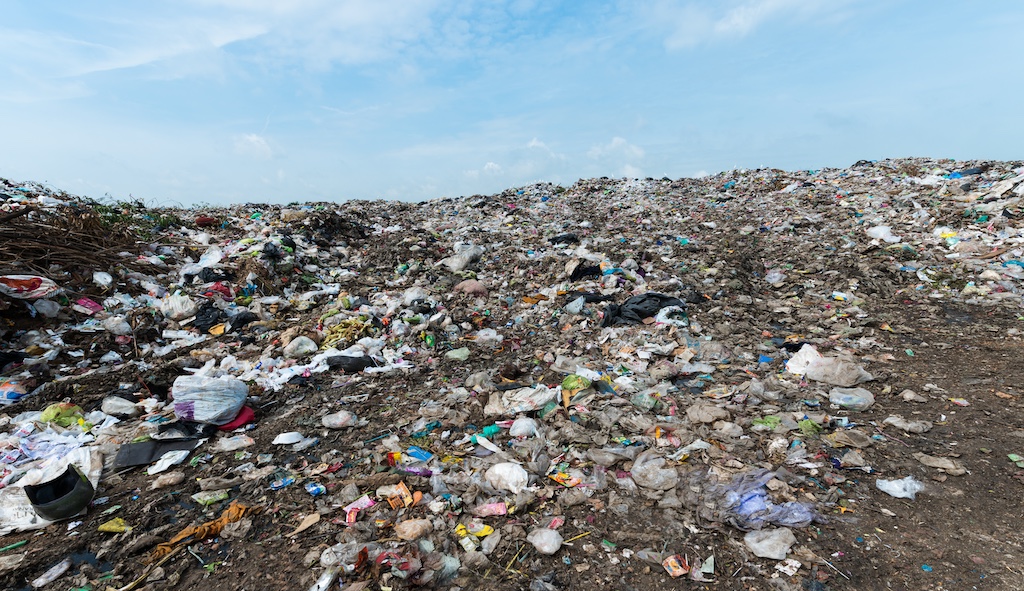
In the NSRF 2007-2013, half of the funds allocated to waste management were used. In the NSRF 2014-2020, absorption increased to two-thirds as the funds were used for the construction of large MBTs. For example, in Palaiochouni, Arcadia, €62.5 million was disbursed as a grant through the NSRF, while €152 million was invested by “TERNA Energy”, which participated in the implementation as a PPP project and took over the operation for 27 years.
Today, instead of using the 2021-2027 NSRF for our country, which has been available for three years, we are letting time run against us. For example, if we reach 2025 to submit a plan, there will be only 5 years left – with the extension – until 2030. This fact can be a prohibitive factor for its approval and implementation.
Difficult projects require a study to be completed before a municipality or authority can submit a proposal, which requires specialized staff, resources, and time. Then environmental permits are required, which further delay the process. Finally, the Ministry of Economy, which manages the funds, has to evaluate and approve the project so that tenders can be issued, objections can be considered, orders can be placed, and finally, deliveries can be made. Procedures that take at least 4-5 years, and much longer for large projects. For example, the waste management plant in Palaiochouni, Arcadia, started in 2010 with the regional governor of the Peloponnese, Petros Tatoulis, and was completed last year with the regional governor, Panagiotis Nikas.
“HERRCO” vs “Rewarding Recycling”
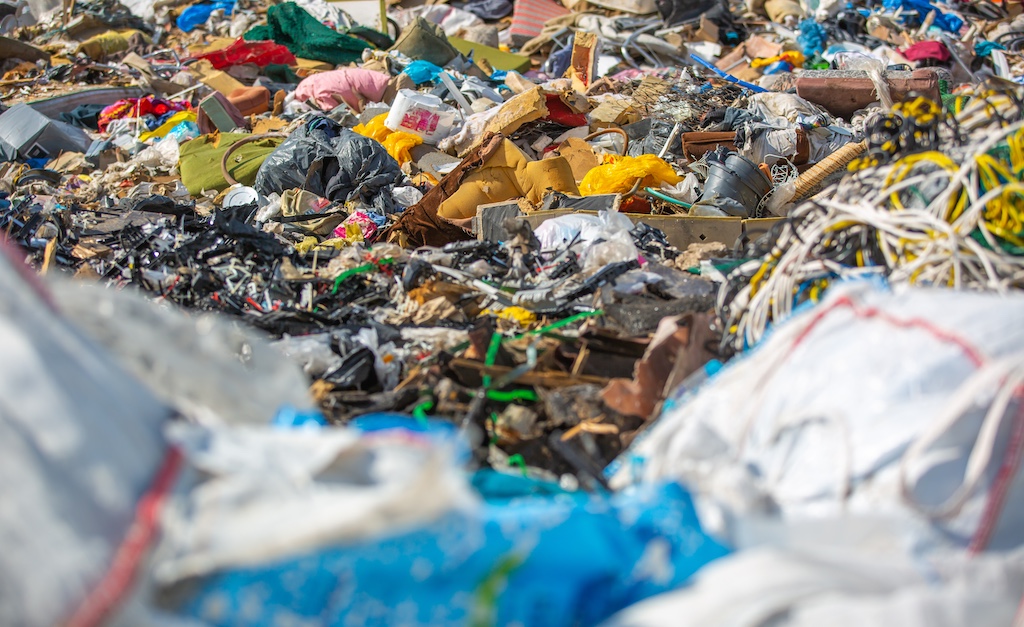
There has been a year-long dispute between two systems that operate in competition with each other. The Hellenic Recovery Recycling Corporation (HERRCO) and Rewarding Recycling S.A. In the first Mitsotakis government, there was even a civil war within the government between the then Minister of Environment and Energy, Kostis Hatzidakis, and the then Minister of Interior, Takis Theodorikakos, who promoted the system of “recycling houses”, announcing that they would be placed in every municipality in Greece and inaugurating many of them together with the then US Ambassador to Greece, Geoffrey Pyatt.
HERRCO ‘s Blue Bins system was established in 2001 and has been operating effectively since 2002. It has been in operation for more than 20 years. In 2008, another system was approved, that of “Rewarding Recycling”, more controlled and with a fee, which started operating in 2009. Both systems are harmonized with the requirements of Law 4042/2012 and EU Directive 2008/98/EC for the separate collection of recyclable packaging materials in at least four separate streams (paper, metal, plastic, and glass).
The Rewarding Recycling system works primarily through “Recycling Houses”, where you can dispose of separated packaging materials (plastic, glass, metal, paper) and receive a redemption coupon at participating supermarkets.
The “recycling houses” operate in competition with HERRCO’s Blue Bin system, and the dispute between them has been going on for two decades.
Meanwhile, HERRCO is in court with the Ministry of the Environment and the Hellenic Recycling Agency (HRA) over the amount of contributions from companies due to unfair competition created by the other packaging recycling system, and the case has not yet been adjudicated.
Relevant article:
According to HERRCO, a very high percentage of obligated companies – around 42% – are evading their obligations. Either by not paying the required contribution for the recycling of their packaging or by not fulfilling their contractual obligation at all. As a result, the efficiency of the system has been declining over the last five years due to the inability to meet the required ratio (one blue bin for every 70 inhabitants and one collection truck for every 200 blue bins). This delay is due, firstly, to the significant evasion of contributions recorded and, secondly, to the fact that the relevant fee collected from consumers by the obligated parties is low compared to the European average. As a result, there are insufficient funds to purchase waste collection trucks and blue bins for distribution to the country’s municipalities. As a result, recycling is underperforming and not expanding, with municipalities complaining that they are not being provided with the necessary number of bins and trucks, in addition to the fact that they cannot hire the necessary personnel. Of course, the question remains as to how they will respond to the collection without an adequate number of trucks, and whether they will end up collecting the contents of the blue bins with the mixed waste trucks. As a result, each municipality simply passes the problem on to the next…
So, the fact that recycling is not going well in Greece is not only due to the mismanagement of the HERRCO system but also to the overall handling of the issue over time by the governments.
The HERRCO considers that the “Rewarding Recycling”, with the model it has chosen, namely the collection of “Recycling Houses”, does not have the practical ability – due to costs and volume – to distribute them in all the municipalities and communities of the country, covering the entire territory. Contrary to the “Blue Bins”, which are also fewer than needed, someone will come across them even within 50-100 meters. For the “Recycling Houses” of Rewarding Recycling, one will have to take their car to transport separately the recyclable materials they have for recycling for some – even a few – kilometers. Today, the blue bin is next to it and recyclable materials are thrown into the green bin because the former is full or simply… out of laziness. And vice versa, thus destroying any recyclable material contained in the Blue Bin.
So, a practical issue arises regarding the functionality of this particular system, regardless of what it theoretically can offer on a communicative level for the further promotion of a recycling culture.




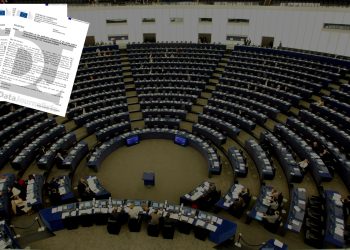




Discussion about this post